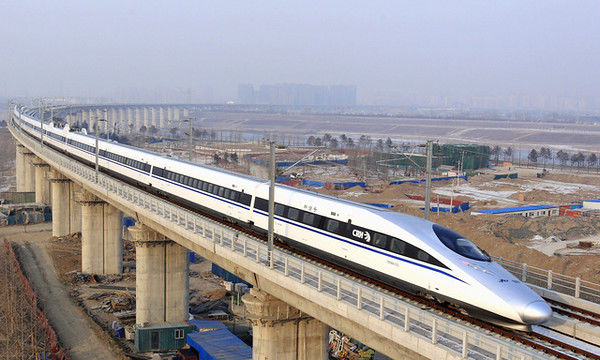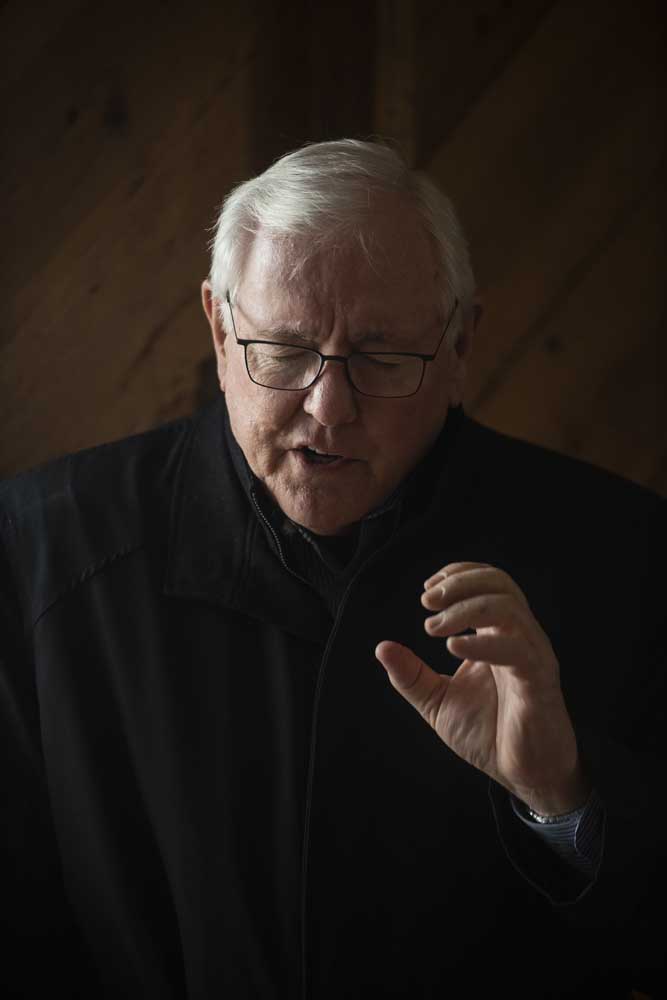Editorial: Texas bullet train an example of crony capitalism
Published 1:32 pm Thursday, February 23, 2017

- In this photo released by China's Xinhua news agency, a bullet train passes over Yongdinghe Bridge in Beijing Wednesday, Dec. 26, 2012.(AP Photo/Xinhua, Jiao Hongtao)
The Texas Tribune has an analysis of the Texas bullet train – the proposed high-speed rail project that would link Dallas with Houston – that misses the point. In the Tribune’s eyes, controversy surrounding the project is about a collision between Texas’ “rural roots and urban future.”
But the real controversy is over property rights, eminent domain – and infrastructure boondoggles.
The recent story opens with Grimes County farmer John Stoneham, who raises cattle on his land.
“Stoneham’s ranch is among thousands of parcels of Texas land that could one day be home to America’s first high-speed rail line,” the Tribune reports. “It’s also the site of a likely collision between two of the state’s most dearly held principles: Texans’ right to do what they want with their property and the free market’s ability to solve thorny problems with little government interference. The outcomes could affect Texans for generations.”
Now, that last sentence is true. The high-speed rail project will set a precedent, however the situation is resolved.
But to describe the project itself as “the free market’s ability to solve thorny problems with little government interference” is misleading.
“Privately owned Texas Central Partners plans to build a 240-mile bullet train line between downtown Dallas and northwest Houston within the next several years,” the Tribune explains. “It promises to speed passengers between the two cities in 90 minutes on train cars that travel 205 mph.”
It’s true that Texas Central Partners is a privately owned company – but this deal is anything but the free market in action.
The free market, as the name implies, is all about voluntary transactions.
“The key insight of Adam Smith’s ‘Wealth of Nations’ is misleadingly simple: if an exchange between two parties is voluntary, it will not take place unless both believe they will benefit from it,” the great Milton Friedman wrote. “Most economic fallacies derive from the neglect of this simple insight.”
That’s precisely what’s happening here. Forcing farmers and ranchers and homeowners to give up their land, through eminent domain, is a violation of that principle.
Of course, “Texas Central says it will only use eminent domain as a last-case scenario,” the Tribune notes. But it will have to do so – the case of the Grimes County rancher is case-in-point.
Once it stops being a voluntary exchange, with both sides benefiting, then it’s not a free market.
And in all likelihood, there’s no way the train can get running without public funding of some sort. Of course, proponents deny this.
“Texas Central promises to get the $12 billion project done without taking public dollars other than through loans – and vows it will help increase tax revenue for scores of cities, counties and school districts along the route,” the Tribune says.
If the project is truly viable, why should it need loans? That’s not the free market, it’s crony capitalism – with government putting a thumb on the scale.
The Tribune’s analysis is flawed. It’s not rural versus urban. It’s about freedom versus government interference.







